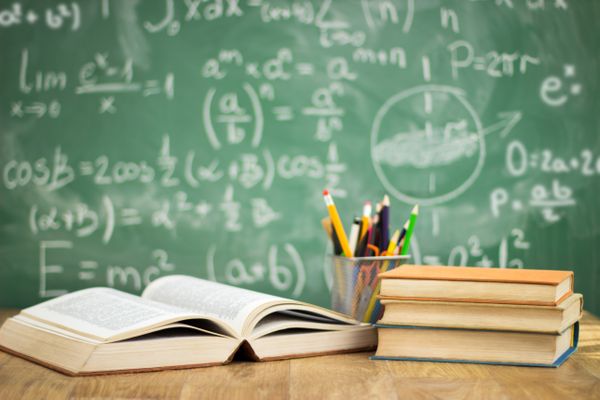4.7.1
Tensions Caused by Globalisation
Tensions from Globalisation - Migration
Tensions from Globalisation - Migration
As places change rapidly because of globalisation, globalisation results in social, political and environmental tensions. Migration has caused the following tensions:


Lack of integration
Lack of integration
- The opening of borders and rise in migration has created mixed societies. For some, this is an advantage and means thriving migrant diasporas.
- But in some cases, migrants do not integrate well with the local population and this can cause tension.


Brexit and UKIP
Brexit and UKIP
- It is likely that tensions around European and international migration led to the UK Independence Party's 12.6% vote in the 2015 general election.
- It is likely that these concerns also played a part in the vote to leave the European Union in the June 2016 referendum.
- A survey published in 2017 found that Brexit was the result of widespread concern over the numbers of people coming to the UK - millions of whom have done so through the EU’s rule of the free movement of people.


Trump and the USA
Trump and the USA
- When Donald Trump became US President, one of his first executive orders (No. 13769) was to curb immigration from certain countries. This order was branded the 'Muslim ban' by some and saw 60,000 visas revoked.


Migration and host countries
Migration and host countries
- Large-scale migration can put a strain on the host location's housing and services (schools and healthcare).
Tensions from Globalisation - Culture
Tensions from Globalisation - Culture
Some groups try to fight the spread of culture which has happened as a result of globalisation. They want to resist changes to their cultural identity and keep their physical resources.


First Nations
First Nations
- An example is the First Nations indigenous people in Canada. The Jumbo Valley is threatened with exploitation to become a ski resort but the indigenous people are resisting this development.


‘Keep Jumbo Wild’ campaign
‘Keep Jumbo Wild’ campaign
- The ‘Keep Jumbo Wild’ campaign represents local residents, concerned citizens and the Ktunaxa Nation (indigenous people) who strongly oppose the development.
- Their argument is that there are few areas of wilderness left in the world and so it should be preserved for future generations - ensuring sustainability.
1Tectonic Processes & Hazards
1.1Tectonic Processes & Hazards
1.2Natural Disasters
1.3Natural Disaster Case Studies
1.4Trends & Patterns
2Option 2A: Glaciated Landscapes & Change
2.1Glaciated Landscapes Over Time
2.2Periglacial Landscapes
2.3Glacial Processes
2.4Glacial Landforms
3Option 2B: Coastal Landscapes & Change
3.1Coastal Landscapes
3.2Coastal Erosion & Deposition
3.3Coastal Risks
4Globalisation
4.1Globalisation
4.2Negatives of Globalisation
4.3Global Shift
4.5Culture
4.6Measuring Development
5Option 4A: Regenerating Places
5.1Types of Economies
5.2Function of Places
5.3Regeneration
5.4Regeneration Case Studies
6Option 4B: Diverse Places
6.1Population Structure
6.2Past & Present Connections
6.3Urban & Rural Spaces
6.4Diversity
6.5Urban & Rural Case Studies
6.6Case Study - Tower Hamlets
6.7Case Study - Sturton-le-Steeple
7The Water Cycle & Water Insecurity (A2 only)
7.1Hydrological Processes Global to Local
7.2Influences on the Water Cycle
7.3Water Insecurity
8The Carbon Cycle & Energy Security (A2 only)
8.1The Carbon Cycle
8.2Energy Consumption
8.3Alternative Energy
8.4Growing Demand for Resources
9Superpowers (A2 only)
9.1Superpowers
9.2Hard & Soft Power
9.2.1Hard & Soft Power
9.2.2Emerging Powers - China Rivalry
9.2.3Emerging Powers - Chinese Sources of Power
9.2.4Emerging Powers - Brazil
9.2.5Emerging Powers - Russia
9.2.6Emerging Powers - India
9.2.7Theories of Development
9.2.8Power Case Studies: Chinese One Belt One Road
9.2.9Power Case Studies: Pakistan Nuclear Arms
9.2.10Power Case Studies: OPEC
9.3IGOs, TNCs & Alliances
10Option 8A: Health & Human Rights (A2 only)
10.1Human Development
10.2Role of Governments & IGOs
10.3Human Rights
10.4Interventions
11Option 8B: Migration & Identity (A2 only)
11.1Globalisation & Migration
11.2Consequences of Migration
11.3Nation States
11.4Responses to Global Migration
Jump to other topics
1Tectonic Processes & Hazards
1.1Tectonic Processes & Hazards
1.2Natural Disasters
1.3Natural Disaster Case Studies
1.4Trends & Patterns
2Option 2A: Glaciated Landscapes & Change
2.1Glaciated Landscapes Over Time
2.2Periglacial Landscapes
2.3Glacial Processes
2.4Glacial Landforms
3Option 2B: Coastal Landscapes & Change
3.1Coastal Landscapes
3.2Coastal Erosion & Deposition
3.3Coastal Risks
4Globalisation
4.1Globalisation
4.2Negatives of Globalisation
4.3Global Shift
4.5Culture
4.6Measuring Development
5Option 4A: Regenerating Places
5.1Types of Economies
5.2Function of Places
5.3Regeneration
5.4Regeneration Case Studies
6Option 4B: Diverse Places
6.1Population Structure
6.2Past & Present Connections
6.3Urban & Rural Spaces
6.4Diversity
6.5Urban & Rural Case Studies
6.6Case Study - Tower Hamlets
6.7Case Study - Sturton-le-Steeple
7The Water Cycle & Water Insecurity (A2 only)
7.1Hydrological Processes Global to Local
7.2Influences on the Water Cycle
7.3Water Insecurity
8The Carbon Cycle & Energy Security (A2 only)
8.1The Carbon Cycle
8.2Energy Consumption
8.3Alternative Energy
8.4Growing Demand for Resources
9Superpowers (A2 only)
9.1Superpowers
9.2Hard & Soft Power
9.2.1Hard & Soft Power
9.2.2Emerging Powers - China Rivalry
9.2.3Emerging Powers - Chinese Sources of Power
9.2.4Emerging Powers - Brazil
9.2.5Emerging Powers - Russia
9.2.6Emerging Powers - India
9.2.7Theories of Development
9.2.8Power Case Studies: Chinese One Belt One Road
9.2.9Power Case Studies: Pakistan Nuclear Arms
9.2.10Power Case Studies: OPEC
9.3IGOs, TNCs & Alliances
10Option 8A: Health & Human Rights (A2 only)
10.1Human Development
10.2Role of Governments & IGOs
10.3Human Rights
10.4Interventions
11Option 8B: Migration & Identity (A2 only)
11.1Globalisation & Migration
11.2Consequences of Migration
11.3Nation States
11.4Responses to Global Migration
Unlock your full potential with Seneca Premium
Unlimited access to 10,000+ open-ended exam questions
Mini-mock exams based on your study history
Unlock 800+ premium courses & e-books